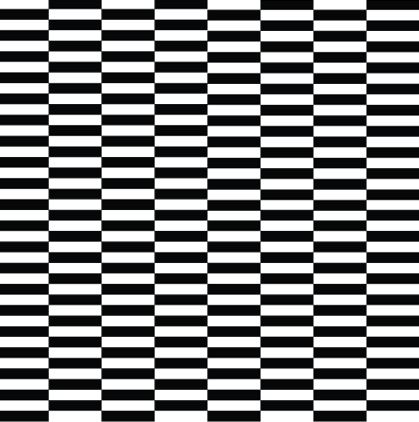Published: December 5, 2011
 Scientists at the University of Hull have found that some people have the ability to hallucinate colours at will – even without the help of hypnosis.
Scientists at the University of Hull have found that some people have the ability to hallucinate colours at will – even without the help of hypnosis.
The study, published this week in the journal Consciousness and Cognition, was carried out in the Department of Psychology at the University of Hull. It focused on a group of people that had shown themselves to be ‘highly suggestible’ in hypnosis.
The subjects were asked to look at a series of monochrome patterns and to see colour in them. They were tested under hypnosis and without hypnosis and both times reported that they were able to see colours.
Individuals’ reactions to the patterns were also captured using an MRI scanner, which enabled the researchers to monitor differences in brain activity between the suggestible and non-suggestible subjects. The results of the research, showed significant changes in brain activity in areas of the brain responsible for visual perception among the suggestible subjects only.
Professor Giuliana Mazzoni, lead researcher on the project says: “These are very talented people. They can change their perception and experience of the world in ways that the rest of us cannot.” [continue reading…]
Published: December 3, 2011
 People who think that becoming a workaholic means they can compensate for an unhappy home life are deluding themselves, according a new study from Kingston University’s Business School in London.
People who think that becoming a workaholic means they can compensate for an unhappy home life are deluding themselves, according a new study from Kingston University’s Business School in London.
Researchers investigated the idea that employees who are dissatisfied in their personal lives seek ‘compensatory rewards’ through work, but found that this is hardly ever successful.
The study, published in the British Journal of Management, bases its conclusions on an analysis of a detailed survey about the life and job satisfaction of more than 10,000 people across thirty European countries. It found that in most countries there is an overall link between job and life satisfaction, especially for the main earners in households but, crucially, this would not extend to anyone attempting to use work to compensate for unhappiness in their personal life.
“The life and the work domains are definitely clearly correlated. Happiness at home affects your job and vice versa. Although there is a clear ‘spillover’ effect from one area of life to the other, there is no evidence that people who are very unhappy at home will feel ‘compensated’ by work in any way,” report co-author Professor Yannis Georgellis from Kingston Business School said. [continue reading…]
Published: December 1, 2011

Photo by Jaren Wilkey
functional magnetic resonance imaging (fMRI) analysis of long-term effects of violent video game play on the brain has found changes in brain regions associated with cognitive function and emotional control in young adult men after one week of game play. The results of the study were presented today at the annual meeting of the
Radiological Society of North America (RSNA).
The controversy over whether or not violent video games are potentially harmful to users has raged for many years, making it as far as the Supreme Court in 2010. But there has been little scientific evidence demonstrating that the games have a prolonged negative neurological effect.
“For the first time, we have found that a sample of randomly assigned young adults showed less activation in certain frontal brain regions following a week of playing violent video games at home,” said Yang Wang, M.D., assistant research professor in the Department of Radiology and Imaging Sciences at Indiana University School of Medicine in Indianapolis. “These brain regions are important for controlling emotion and aggressive behavior.” [continue reading…]
Published: December 1, 2011
 Have an important final exam coming up? Maybe your test prep should include chewing some gum.
Have an important final exam coming up? Maybe your test prep should include chewing some gum.
St. Lawrence University Assistant Professor of Psychology Serge Onyper conducted a study that showed that students who chewed gum for five minutes before taking a test did better on the test than non-gum-chewing students. “Mastication-induced arousal” is credited for the boost, which lasted for about the first 20 minutes or so of testing. Results of the study were published in the journal Appetite.
A “battery of cognitive tasks” was given to the study participants, who chewed gum either prior to or throughout testing. Their performance was then compared with subjects who did not chew gum.
Many studies have shown that any type of physical activity can produce a performance boost; this study points out that even mild physical activity can bring on such a boost. [continue reading…]
 Scientists at the University of Hull have found that some people have the ability to hallucinate colours at will – even without the help of hypnosis.
Scientists at the University of Hull have found that some people have the ability to hallucinate colours at will – even without the help of hypnosis.


